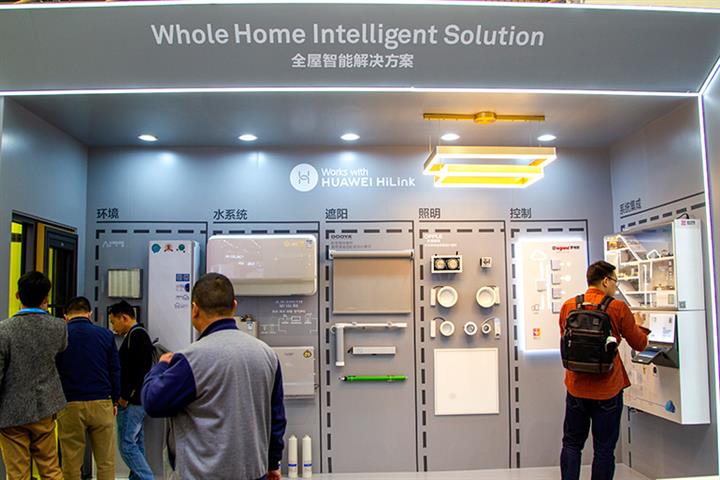 Huawei’s All-in-One Smart Home Solution to Be Available Next Year
Huawei’s All-in-One Smart Home Solution to Be Available Next Year(Yicai Global) Dec. 21 -- Huawei Technologies’ new all-in-one intelligent house system will be on sale from March next year as the Chinese telecoms giant looks to diversify its product line to get round a series of US sanctions that are crippling its handset business.
The product controls the lighting, security, air, water, music and sensor systems in a home, the company said on its Twitter-like Weibo account today.
The firm released the second version of its self-developed operating system in September with new features such as cross-device collaboration and voice interaction. Chinese household appliance makers Midea Group and Robam Electric as well as soybean milk machine manufacturer Joyoung have already integrated the new OS into their products.
Huawei was forced to develop its own proprietary OS after the US government placed the company on its so-called Entity List last May over national security concerns, barring US companies from buying its products and from selling it their hardware and software. This has meant that key apps, such as Google’s Play Store, Google Maps and Youtube, are no longer accessible on the latest Huawei phones, greatly affecting the general user experience.
With the new software now launched, the firm is keen for it to be used on as many platforms as possible. Huawei’s goal for next year is for HarmonyOS to be installed on 100 million devices, Yang Haisong, vice president of its consumer business group’s software department, said previously.
The firm is also aiming for a 16 percent share in the country’s smart home market by the end of 2021, Yang said. This will be quite a challenge and would require it to become one of the biggest players in the market. In the third quarter, Beijing-based Xiaomi was top of the pile with a 16.3 percent market share, followed by Midea with 11.3 percent and Haier with 9.8 percent.
The global smart home device market is expected to grow 4.1 percent this year from the year before to 854 million units, according to September data from US market intelligence firm International Data Corp. This should increase to a compound annual growth rate of 14 percent over the next five years to 1.4 billion units in 2024, it added.
Editor: Kim Taylor